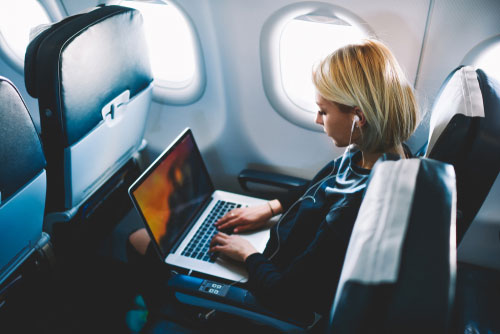Let’s take a look at why people are flying so much nowadays, often by unsustainable transportation means, and see how exploring nearby can be as good as traveling half the world. How can people be encouraged to travel in a more eco-friendly way and what can be done at a wider, political or business, level?
In our piece Traveling Today And Tomorrow: Cities And Countries With More Travelers we explored how traveling is growing from day to day, as well as the cities and countries where most visitors come from and go to. This time, we’ll go over the main reasons why people travel to distant places and remember what reasons they might have to stay closer to home.
When People Say: “I Want To Go Away And See Different Things”
Sure. And that’s ok. But what about exploring what’s nearby? Do you know all the main places close to where you live? Both urban areas or natural sights? You may know the most famous, trendy places, but do you know the old typical restaurants only locals know of where there are so many stories and jokes to tell and nice people to meet?
Or the wildest tracks in protected forests, where no one is expecting to see a beautiful hidden waterfall? Perhaps you’d be surprised by what’s just around the corner. And at a larger scale, from a social perspective, it means spending money within borders and contributing to the national economy. Not to mention the joy of speaking the native language and being perfectly understood.
At a wider level, it’s important that city halls have good marketing strategies able to get to local citizens and show them how fun and interesting traveling within borders can be. What if the most iconic places in-country had some discounts only for “locals”? Home sweet home.
When People Say: “I Want To Go Away And See Different Cultures, Habits, People”

And no one can stop you! Still, there’s a sustainability mindset you can anchor your actions on. Be aware of how polluting transportation is. Avoid planes and choose trains or buses instead. If the car is the only way or the most interesting one, try to fill it up with +4 people – otherwise, a car can be just a polluting as a plane. If you don’t have that number, remember you can always give a ride to other travelers, charge a friendly amount for it and perhaps get to know some fun and interesting stories.
At a wider level, some trips are more time and money expensive when done by bus or train, compared to traveling by plane. That’s why it’s important that, at a national level, the investment in modern buses and railways is done.
Furthermore, why don’t the most committed companies offer their employees their traveling days off when they travel by bus or train, as a reward for their ecological behavior? Or cover the price difference between airplane and train tickets? In this way, perhaps people would be less worried about spending more time from their Holidays in transit or about spending slightly more on a ticket. Something that might be worth for business with CSR strategies to think about?
3 – When People Say: “I Want To Go Away And See Different Cultures, Habits, People. And I Can’t Doing It Without Taking A Plane”

And that’s ok. As long as you don’t do it the whole time, it should be ok. Try to take only a transatlantic flight a year – otherwise, 2 flights would make you go over the 2,1t/co2/person we should all aim to keep the temperature below 2ºC. And counterbalance it by adopting sustainable behaviors in other areas besides transportation, such as eating local (and seasonal), eating less meat, or commuting to work.
Moreover, you can always offset your impact (although it’s not the ideal scenario) by donating money to plant trees or investing in impact funds where, for instance, solar panels are built. And when you do travel by plane, try to make the best out of it. Don’t just go for a couple of days or for a week or two. Try to stay the longer you can so you can visit the largest number of nearby places and perhaps you won’t need to go back to a nearby place anytime soon.
At a wider level, why not have policies that make it mandatory that transportation companies pay more their co2 emissions? Either directly and showing proof of it in their CSR reports or paying to a third-party to manage the money on offsetting projects. In fact, so much was expected of carbon credits but they’re taking a long time to take off – as without global policies nations implementing such policies might risk losing economic competitiveness and jobs. A complicated question, which makes asking people to re-think their traveling habits slightely easier!
Image credits to traveler on Shutterstock and airplane on Shutterstock

